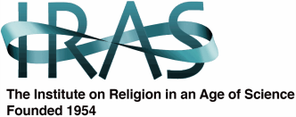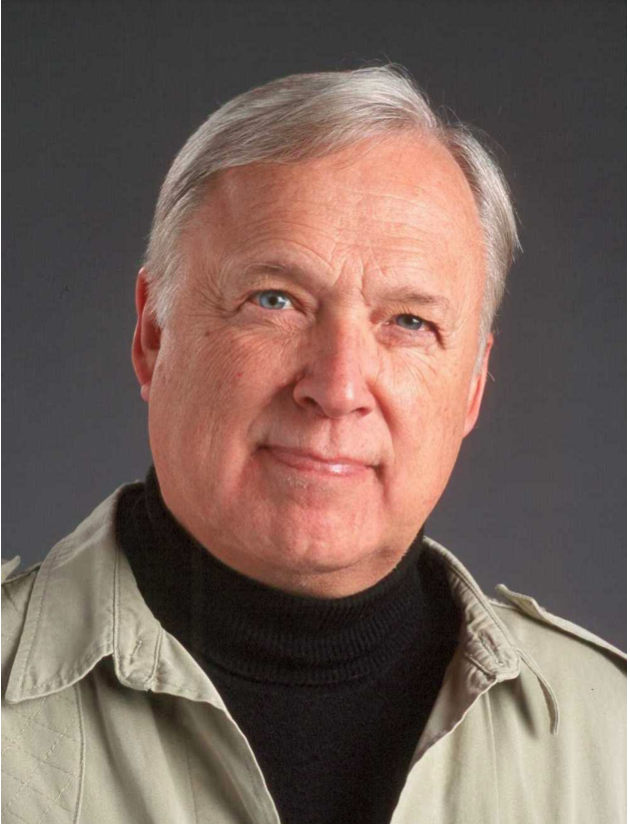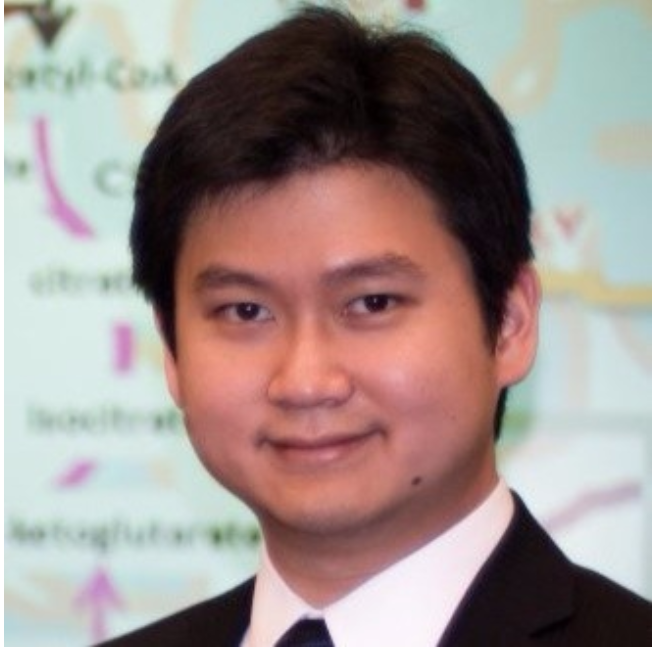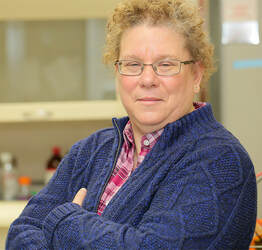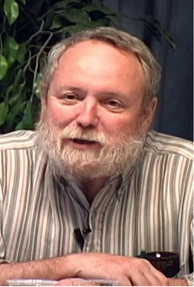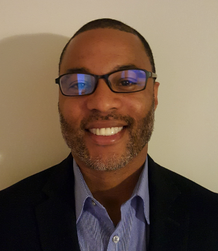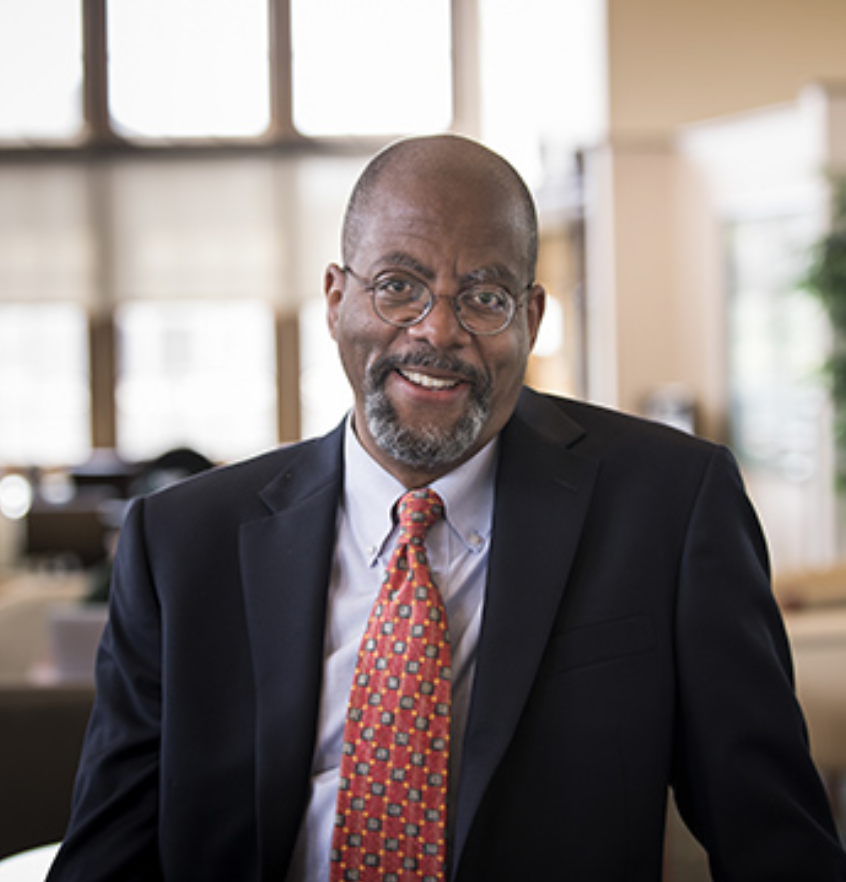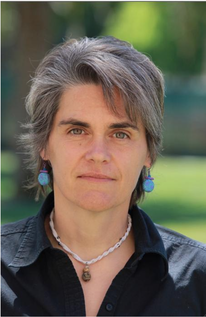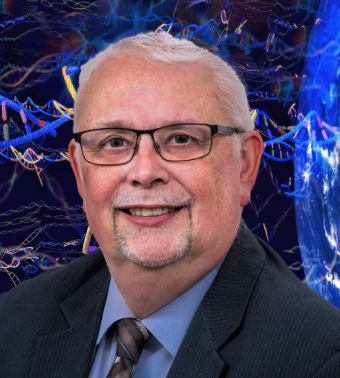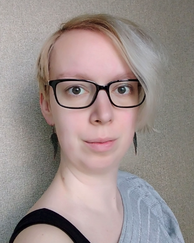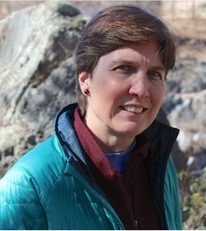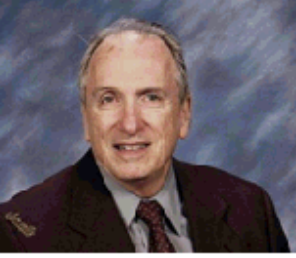Ted Peters, Program Co-ChairTed Peters is Research Professor Emeritus in Systematic Theology and Ethics at Pacific Lutheran Theological Seminary (PLTS) and the Graduate Theological Union (GTU). He co-edits the journal, Theology and Science, at the Center for Theology and the Natural Sciences (CTNS). He is author of Playing God? Genetic Determinism and Human Freedom (Routledge, 2nd ed., 2003) and God in Cosmic History: Where Science and History Meet Religion (Anselm Academic, 2017). He is co-author of Can You Believe in God and Evolution (Abingdon, 2006) and Sacred Cells? Why Christians Should Support Stem Cell Research (Roman and Littlefield, 2008). This past year he published an edited volume, Astrotheology: Science and Theology Meet Extraterrestrial Life (Cascade, 2018). He holds a B.A. degree from Michigan State University, the MDiv degree from Trinity Lutheran Seminary, and the M.A. and PhD from the Divinity School at the University of Chicago.
|
Arvin Gouw, Program Co-ChairArvin Gouw is the vice president for research and development at the Rare Genomics Institute (RG), where he oversees the Rare Genomics Task Force (RGTF) and the BeHEARD Challenge (Help Empower & Accelerate Research Discoveries), which provide grants globally to rare disease researchers, foundations, and patient families. In collaboration with biotech and pharma, his programs have provided various resources, including CRISPR and other genetic mouse models, that have led to the development of novel drugs for rare diseases. Dr. Gouw is also a research fellow in Oncology at Stanford University School of Medicine and affiliate scientist at UC Berkeley/LBNL, developing cancer drugs and drug screening platforms. His work has led to the filing of over half a dozen patents for novel cancer diagnostics and therapeutics and has received support and funding from Stanford, Berkeley, the National Science Foundation (NSF), and the National Institutes of Health (NIH) Cancer Nanotechnology program. Dr. Gouw did his fellowship on science and religion at Princeton. He has a Ph.D. from Johns Hopkins University School of Medicine, M.Phil. in philosophy from the University of Pennsylvania, M.A. in theology from St. Mary’s Seminary and University Ecumenical Institute of Theology, and M.A. in endocrinology and B.A. in molecular cell biology — neurobiology from UC Berkeley.
|
Gayle WoloschakGayle E. Woloschak is Professor of Radiation Oncology in the Feinberg School of Medicine and Associate Dean of The Graduate School at Northwestern University. Gayle received her Ph.D. in Medical Sciences from the University of Toledo (Medical College of Ohio). She did her postdoctoral training at the Mayo Clinic, and moved to Argonne National Laboratory until 2001. Her scientific interests are in the areas of molecular biology, radiation biology and nanotechnology. She is a member of various national and international committees and serves on the US delegation to the United Nations Scientific Committee on the Effects of Atomic Radiation. She also received a DMin degree from Pittsburgh Theological Seminary in Eastern Christian Studies. She is Adjunct Professor of Religion and Science at Lutheran School of Theology Chicago and Sessional Professor of Bioethics at St. Vladimir’s Orthodox Theological Seminary. Her research interests there include environmental issues, bioethical questions, and evolution.
|
Michael RuseMichael Ruse has been teaching at Florida State University since 2000, holding the position Lucyle T. Werkmeister Professor of Philosophy and the Director of the Program in the History and Philosophy of Science. He took his B.A. in Philosophy and Mathematics at the University of Bristol, his M.A. in Philosophy at McMaster University, and his PhD in Philosophy at University of Bristol in 1970. For thirty years he served on the Faculty at the University of Guelph, teaching History, Philosophy, and Zoology, being named Professor Emeritus in 2018. Founding editor of the journal Biology and Philosophy, he is the author or editor of over fifty books.
|
Kareem WashingtonKareem Washington is an Assistant Professor in the Department of Pediatrics and Child health, Division of Genetics & Human Genetics; Graduate school Chair of the Dept. of Genetics and Human Genetics Howard University and Director of Graduate studies. As a post doctorate research fellow in the laboratory of molecular and clinical hematology (MCH), a branch of the National Institute of Digestive, Diabetes and Kidney disease 2005), he contributed to and developed a wealth of knowledge in lentiviral vector production for CD34+ cell transduction, integration, and CD34+ cell cryopreservation. He continues to perform translational research on diseases that are amenable to treatment by gene therapy technology. His current research is focused on (1) developing a RNA editing Pre-Clinical molecule with therapeutic potential to treat and prevent sickle cell disease pathology, (2) examining globin gene expression transcription factors regulation γ to β-globin switching during neonatal anemia, and (3) the genetic association between Vitamin D insufficiency and preeclampsia in pregnant mothers.
|
Arthur SutherlandArthur Sutherland, who holds advanced degrees from Yale University Divinity School and Princeton Theological Seminary, is an associate professor of theology. Dr. Sutherland conducted research in Germany and Switzerland for his dissertation on Karl Barth and has received fellowships from the Fund for Theological Education, the Association for Religion and Intellectual Life, the Christian Scholars Fund, and the Wabash Center for the Teaching of Theology and Religion. His research interests are in the history of Christian doctrine, African-American theology, and the spirituality of generosity. His book, I Was a Stranger: A Theology of Christian Hospitality, which addresses immigration, exile, and violence, was nominated for the Grawemeyer Award for Religion. As Loyola's director of national fellowships from 2007-2016, he helped students win nearly 40 prestigious academic awards including scholarships from Fulbright, Goldwater, Gilman, Critical Languages, Lilly, and the German Academic Exchange Service (DAAD). He founded the Ignatian Pedagogy Seminar for Loyola’s faculty, is a member of the Messina faculty, taught in the Alpha program for 12 years, and in the Honors program since 2003.
|
Lisa FullamLisa Fullam joined the faculty of the Jesuit School of Theology at Santa Clara University in August 2003. As Professor of Moral Theology, she teaches courses such as Fundamental Moral Theology, Sexual Ethics, Luther and Ignatius: Conversations Ethics, and Spirituality of Pastoral Ministry, and Issues in Virtue Ethics. She received her baccalaureate and D.V.M. degrees from Cornell University, and earned her M.T.S. and Th.D. at the Harvard Divinity School. Dr. Fullam's research interests include virtue ethics, Thomas Aquinas, biomedical ethics, Ignatian spirituality, and the relationship of spirituality and ethics. She is also accredited as a faculty member at the Graduate Theological Union in Berkeley. Among her publications is the monograph Curiosity and Skepticism: Virtues for Genomics. Popular as a speaker, her recent engagements include Quincy University and the University of Massachusetts, Lowell.
|
Gary ShermanGary B. Sherman (DVM, Ph.D.), currently serves as Associate Vice President for Research & Inovation at Virginia Polytechnic Institute & State University (Virginia Tech) in Blacksburg, VA. Immediately prior to his appointment at Virginia Tech, Gary served in various capacities as National Program Leader for Veterinary Science, Medicine & Agrosecurity at the USDA-National Institute of Food & Agriculture (NIFA) in Washington, D.C. During his 11-year tenure at NIFA, Gary provided leadership for several national grant programs related to food production and agricultural sustainability, and was lead NIFA liaison to other Federal entities such as NIH, NSF, and the White House office of Science and Technology Policy (OSTP) on matters related to microbiomics, antibiotic resistance, foreign animal disease threats, prion diseases, pandemic prediction. and ‘One Medicine’. Before moving to USDA, Gary was a review scientist from at the FDA’s Center for Veterinary Medicine (CVM), Division of Human Food safety in Rockville, MD. While at FDA, he chaired the FDA-CVM’s Animal Biotechnology Working Group charged with investigating the safety of human food derived from cloned and transgenic animal. Gary’s formal education includes a BS in Zoology and Animal Sciences from the University of Rhode Island (’75), an MS in Cell biology from the University of Illinois-Chicago (’78), and BSVM (’82), DVM (’84) and PhD (’89) degrees from the College of Veterinary Medicine, University of Illinois at Urbana-Champaign (UI-CVM). Following Postdoctoral studies in comparative molecular endocrinology at Cases Western Reserve University Medical School in Cleveland, Gary returned in 1990 to his DVM and PhD Alma Mater, the University of Illinois College of Veterinary Medicine, where he held research and teaching faculty positions from 1989-97, moving on in 1998 to join the faculty of the Department of Veterinary Biosciences at the University of Nebraska where he established the Veterinary Research Genetics Lab (VRGL). In 2014, Gary organized the first of several annual Evolution Weekend-Maryland (EWMD) events that continue to this day under the leadership WesleyNexus. Gary has been active in numerous professional and community organizations such as the United Methodist Church, The Clergy Letter Project, the AAAS, the Unites States Animal Health Association, the American Veterinary Medical Association, Sigma Xi (the Honorary Scientific Research Society) and Phi Zeta (the honorary Society of Veterinary Medicine.)
|
Nadine VincentenNadine Vincenten, Ph.D., is a Science Associate with the Personal Genetics Education Project (pgEd) at Harvard Medical School. Trained as a researcher herself, she recognizes that the very genetic technologies she applied in the lab will very soon touch all of our lives. She strives to be a bridge between the researchers who are at the forefront of developing genetic technologies and society at large. She also believes that for personal genetics to benefit everyone in society, raising awareness and promoting inclusive dialogues are crucial. Prior to joining pgEd, Nadine was a post-doctoral fellow at Harvard University studying chromosome dynamics in mammalian systems. Nadine received her B.Sc. in Liberal Arts and Sciences from UCR at Utrecht University (Netherlands) and her Ph.D. in Cell Biology from the University of Edinburgh (UK). She also completed the Scientists Teaching Science course by Barbara Houtz of STEM Education Solutions LLC, as well as a certificate in Teaching from the Derek Bok Center for Teaching and Learning at Harvard University.
|
Connie Bertka, ChaplainConnie Bertka, Independent Scholar and Consultant, Science and Society Resources LLC, and Adjunct Professor, Wesley Theological Seminary, also serves as Co-Chair, Broader Social Impacts Committee, Smithsonian’s National Museum of Natural History’s Human Origins Program in Washington, DC. Completing her baccalaireate in Geology at the University of Cincinnati, Connie was offered an internship at the Lunar and Planetary Institute in Houston where she worked with the curator of the lunar rock collection. That experience ignited a passion for viewing Earth as one piece of a larger cosmic puzzle. Her graduate career began at Arizona State University with a NASA Graduate Student Researcher Fellowship and then gained a Pre-doctoral Fellowship at the Geophysical Laboratory of the Carnegie Institution of Washington. After receiving her Ph.D. from Arizona State University in 1991, and while at the Carnegie Institution in Washington, Connie began taking courses at Wesley Theological Seminary to pursue a scholarly and pragmatic interest in the relationships between science and religion, especially their influence on public understanding of science. In 2000 she joined the American Association for the Advancement of Science’s Program of Dialogue on Science, Ethics and Religion and was Program Director until 2008. She completed a Master of Theological Studies at Wesley in 2006. One effort she led at AAAS was a multi-year workshop series to encourage the exchange of ideas between astrobiology scientists, and humanities scholars. She is the editor of a volume resulting from that work, Exploring the Origin, Extent, and Future of Life: Philosophical, Ethical and Theological Perspectives (Cambridge University Press 2009). Currently Connie’s work is focused on science education and public engagement; she is the lead author on the Human Origins Program’s Cultural and Religious Sensitivity Teaching Strategies Resource (2015) and part of the team facilitating public programming for the Smithsonian’s traveling exhibit, Exploring Human Origins: What Does It Mean to Be Human? Since 2008 she has taught a course on Contemporary Issues in Science and Religion at Wesley Theological Seminary. Connie lives in Rockville, Maryland and is a member of the Unitarian Universalist Congregation of Rockville. Convinced that a simple bike ride can be a force for good in the world, Connie volunteers with a local bicycle advocacy group and is a founding board member of a community bike shop, the Rockville Bike Hub.
|
Maynard Moore
|
Copyright by The Institute on Religion in an Age of Science
Proudly powered by Weebly
